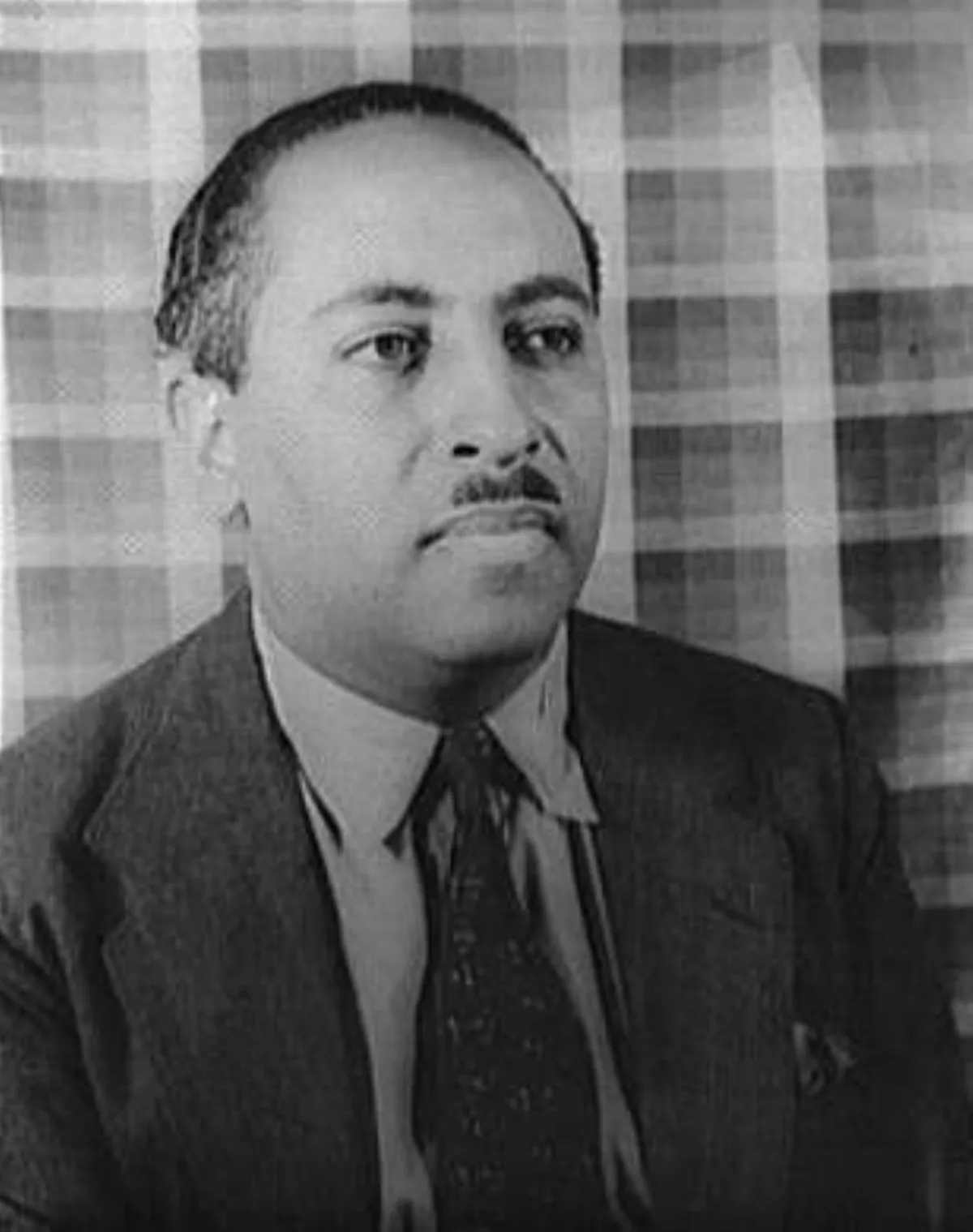 1.
1. Arna Wendell Bontemps was an American poet, novelist and librarian, and a noted member of the Harlem Renaissance.

 1.
1. Arna Wendell Bontemps was an American poet, novelist and librarian, and a noted member of the Harlem Renaissance.
Arna Bontemps's ancestors included free people of color and French colonists.
Arna Bontemps's father was a contractor and sometimes would take his son to construction sites.
The family was Catholic, and Arna Bontemps was baptized at St Francis Xavier Cathedral.
Arna Bontemps majored in English and minored in history, and he was a member of the Omega Psi Phi fraternity.
Arna Bontemps later traveled to New York City, where he settled and became part of the Harlem Renaissance.
Arna Bontemps depicted hope as an "empty bark" drifting meaninglessly with no purpose, referring to his confusion about his career.
In New York, Bontemps met other writers who became lifelong friends, including Countee Cullen, Langston Hughes, W E B Du Bois, Zora Neale Hurston, James Weldon Johnson, Claude McKay and Jean Toomer.
In 1926 Arna Bontemps married Alberta Johnson, with whom he had six children.
Arna Bontemps received a considerable amount of attention for his first novel, God Sends Sunday.
Arna Bontemps was praised for his poetic style, his re-creation of the black language, and his distinguishing characters throughout this novel.
Later in his career, Arna Bontemps collaborated with Countee Cullen to create a dramatic adaption of the novel.
Arna Bontemps continued writing children's novels and published You Can't Pet a Possum, which followed a story of a boy and his pet dog living in a rural part of Alabama.
In later years, Arna Bontemps said that the administration at Oakwood Junior College had demanded he burn many of his private books to demonstrate that he had given up radical politics.
Arna Bontemps resigned from his teaching position and returned with his family to California in 1934.
In 1936 Arna Bontemps published what is considered by some as his best work, Black Thunder.
Arna Bontemps briefly taught in Chicago at the Shiloh Academy but did not stay at the school long, leaving for a job with the Illinois Writers' Project, under the federal Works Progress Administration.
In 1938, following the publication of children's book Sad-Faced Boy, Arna Bontemps was granted a Rosenwald fellowship to work on his novel, Drums at Dusk.
Arna Bontemps struggled to make enough from his books to support his family.
Arna Bontemps became discouraged as an African-American writer of this time.
Arna Bontemps started to believe that it was futile for him to attempt to address his writing to his own generation, so he chose to focus his serious writing on younger and more progressive audiences.
Arna Bontemps met Jack Conroy on the Illinois Writers' Project, and in collaboration they wrote The Fast Sooner Hound.
Arna Bontemps returned to graduate school and earned a master's degree in library science from the University of Chicago in 1943.
Arna Bontemps was appointed as head librarian at Fisk University, a historically black college in Nashville, Tennessee.
Arna Bontemps was initiated as a member of the Zeta Rho chapter of Phi Mu Alpha Sinfonia fraternity at Fisk in 1954.
Arna Bontemps served at Fisk until 1964 and would continue to return occasionally.
Arna Bontemps was the first black head librarian, and first black professional librarian, at Fisk.
Arna Bontemps continued breaking barriers at Fisk up to his retirement.
In 1957, Arna Bontemps encouraged his assistant, Jessie Carney Smith, to become a librarian.
Arna Bontemps later moved to Yale University, where he served as curator of the James Weldon Johnson Collection.
Arna Bontemps worked with Langston Hughes on pieces geared toward adults.
Arna Bontemps collaborated with Conroy and wrote a history of the migration of African-Americans in the United States called They Seek a City.
Arna Bontemps wrote 100 Years of Negro Freedom and edited Great Slave Narratives and The Harlem Renaissance Remembered.
Arna Bontemps compiled his poetry in Personals and wrote an introduction for a previous novel, Black Thunder, when it was republished in 1968.
Arna Bontemps died aged 71 on June 4,1973, at his home in Nashville, from a myocardial infarction, while working on his collection of short fiction in The Old South.